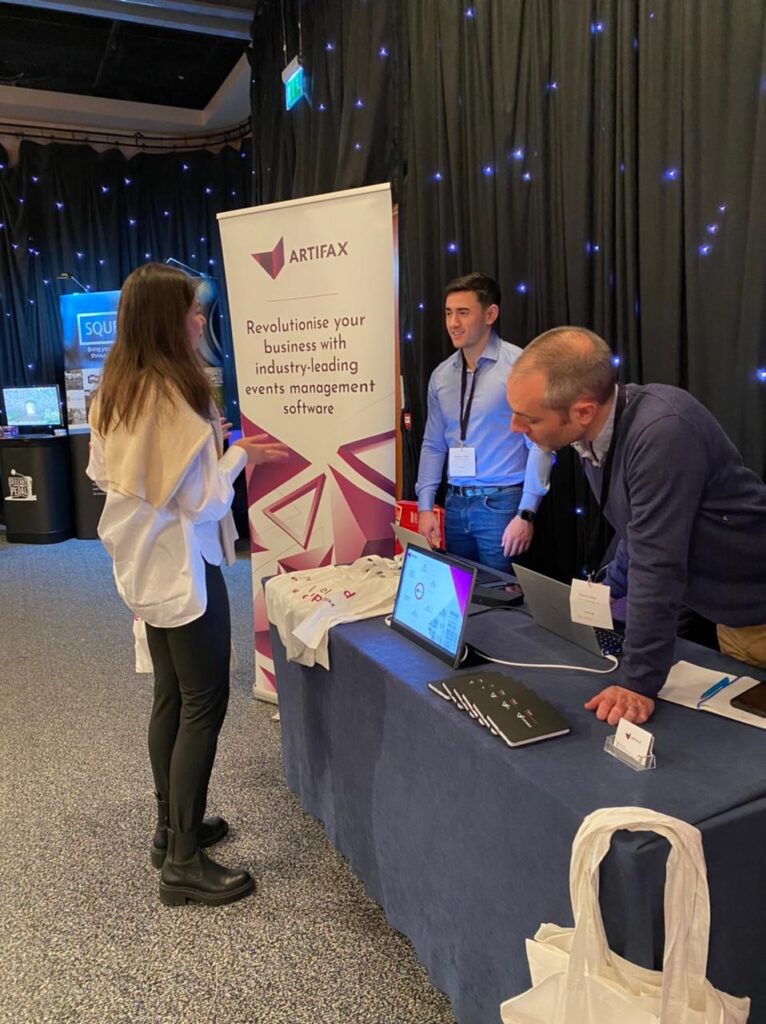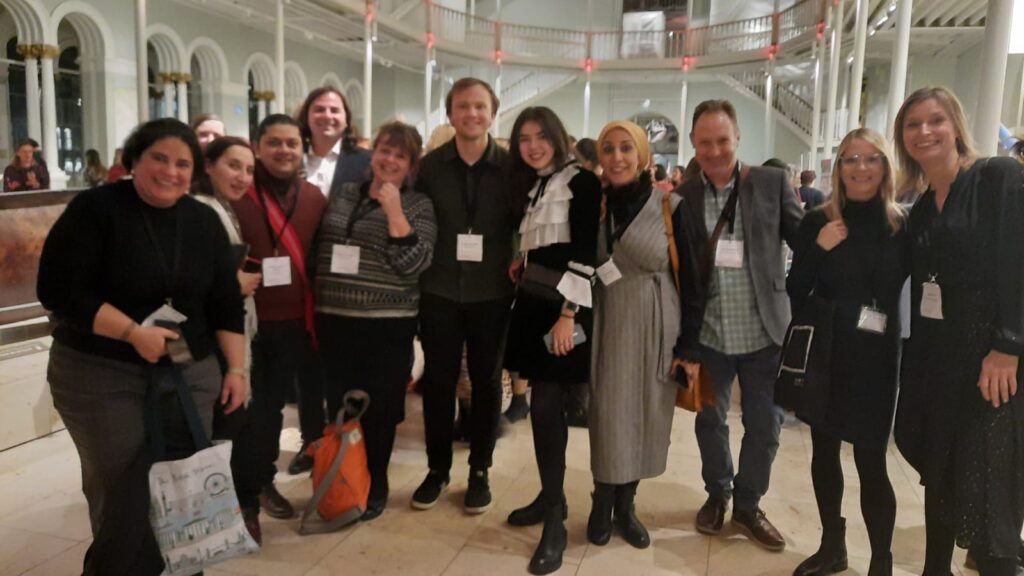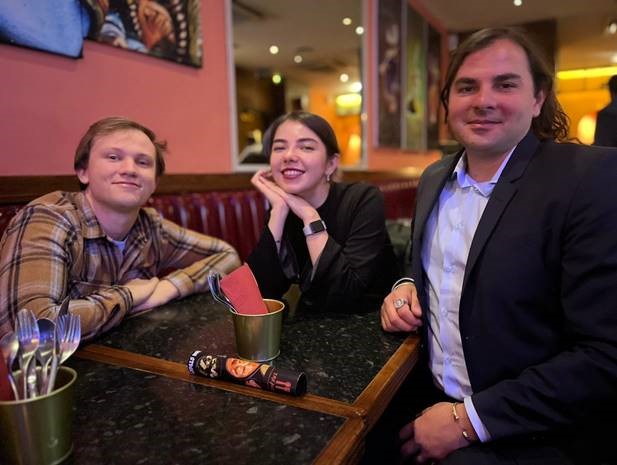Day 2 at the MA Conference (Alsu Akhmetzyanova, Uzbekistan, ITP 2019)
In such a transitioning time in my life, the conference became not just a source of knowledge and networking opportunity, but a reminder that I am an emergency museum specialist who is a great asset to a cultural institution. The sessions I participated in empowered me to make changes in the world. As a person who wants to be everywhere and get the maximum of such events, my schedule was full of sessions, some of which I cancelled last minute remembering the words of Tamsin Russell to focus only on those which are important without wasting your energy and time on others.

The morning started for me with the inspiring session on leadership, “Leading Change” which discussed the types of leadership and the experience they have faced during the pandemic. In that session, the key figures in the sector highlighted the importance of the support of staff and communities rather than having power as visibility. Leonie Bell, director of V&A Dundee, the posh and stunning museum the ITP had a chance to visit a few days before, accentuated the vulnerability of having a leadership position. Christopher Breward, the Director of the National Museum of Scotland, probably the museum with the richest collection in Scotland, emphasised that the pandemic gave him a chance to engage more with colleagues of the museums from all levels. This led to the reconsidering presentation of some of the collections. Miranda Lowe, the Principal Curator of the Natural History Museum, showed her dedication to the Black Lives Matter movement. As she mentioned, because people were at home they finally listened and heard, which is why the death of George Floyd became the focal point. And Arike Oke, the Executive Director of knowledge and collections at BFI talked about the emotional crisis when not only museums but also people shut down. Each leader had to think creatively to make people turn to her or him and have an empathetic connection. Overall, leadership is about accountability, making a difference, driving and empowering people, helping, seeing people flourishing, and knowing when it is time to leave the position.

The next sessions “Open Space: Exploring Feminist Interpretation” and “The Final Frontier” were focused on equality, diversity, and inclusion. Considering my background in this sector, it was beneficial and impressive for me to discover these projects in the UK. Such people like people with disabilities or women are often excluded, ignored, and diminished by interpretation of history in the past and now. Speakers shared their experiences to interpret inclusively that reconsider some of the objects and finds earlier ignored or hidden. By doing that they fill the gaps in the collections and make museums truly inclusive.

“Culture during conflict” discussed the role of culture, priorities, and values during times of conflict. The Panelists from the UK, USA, Ukraine, Syria, and Iraq shared their experiences in the rapidly changing environment. Many of them defined culture as knowledge or relation between individuals and communities or surroundings. Many curators define culture as something tangible; however, when people are forced to leave their country they miss the most their food, music, and literature which is also their culture. For many Ukrainians now culture is the tool of self-identification in their values. Nevertheless, if we talk about prioritisation it is essential to mention that for the majority human stands before anything else. Therefore, during such regimes, many escape the country to deliver messages and express themselves, while others stay in the danger to collect stories for the next generations, visitors, local communities, and criminal trials as is been done right now in Ukraine.

The conference was wrapped up by the closing reception at the City Art Centre, where I met my colleagues, made new friends, shared contacts, and discussed the most interesting sessions. The MA conference made me feel welcome, so many fantastic talks, workshops, museums, and people. It will take me weeks to process all the information I have learned, but it was absolutely amazing time.
